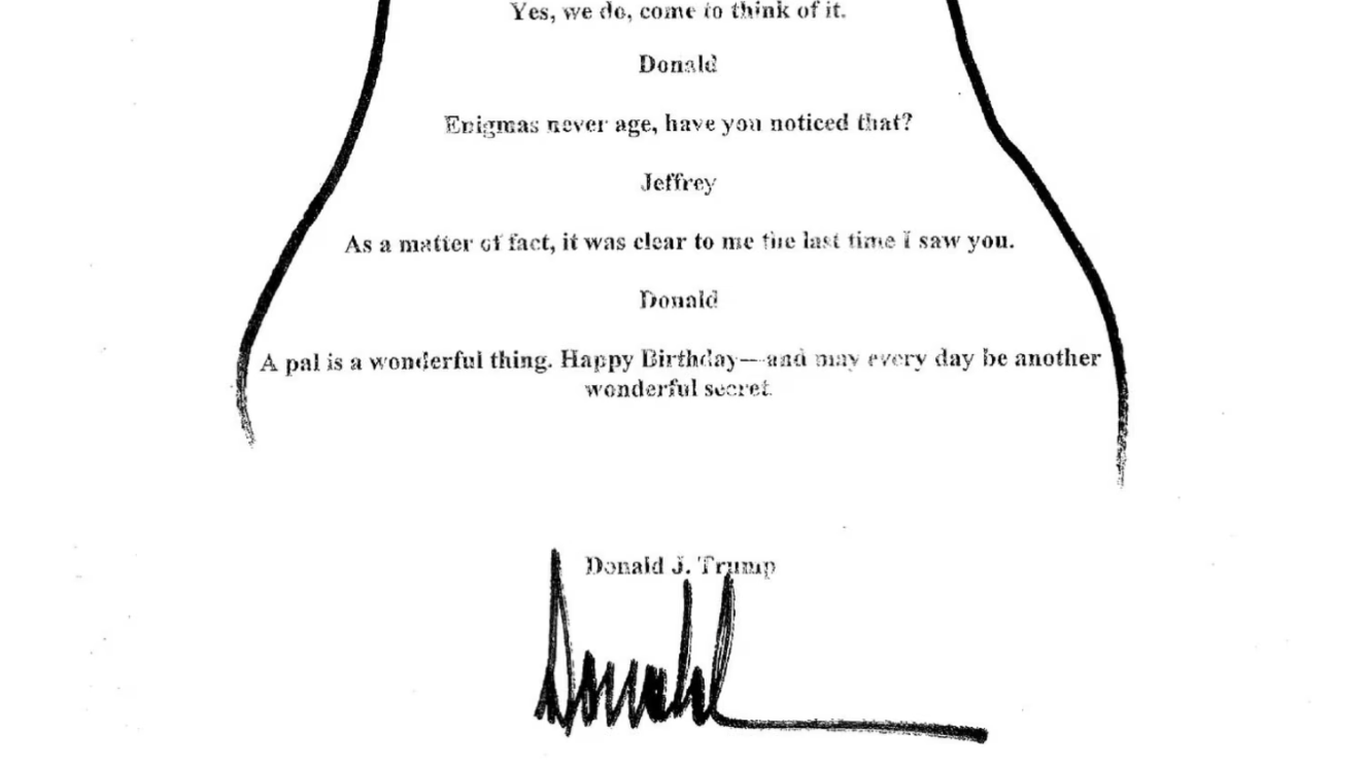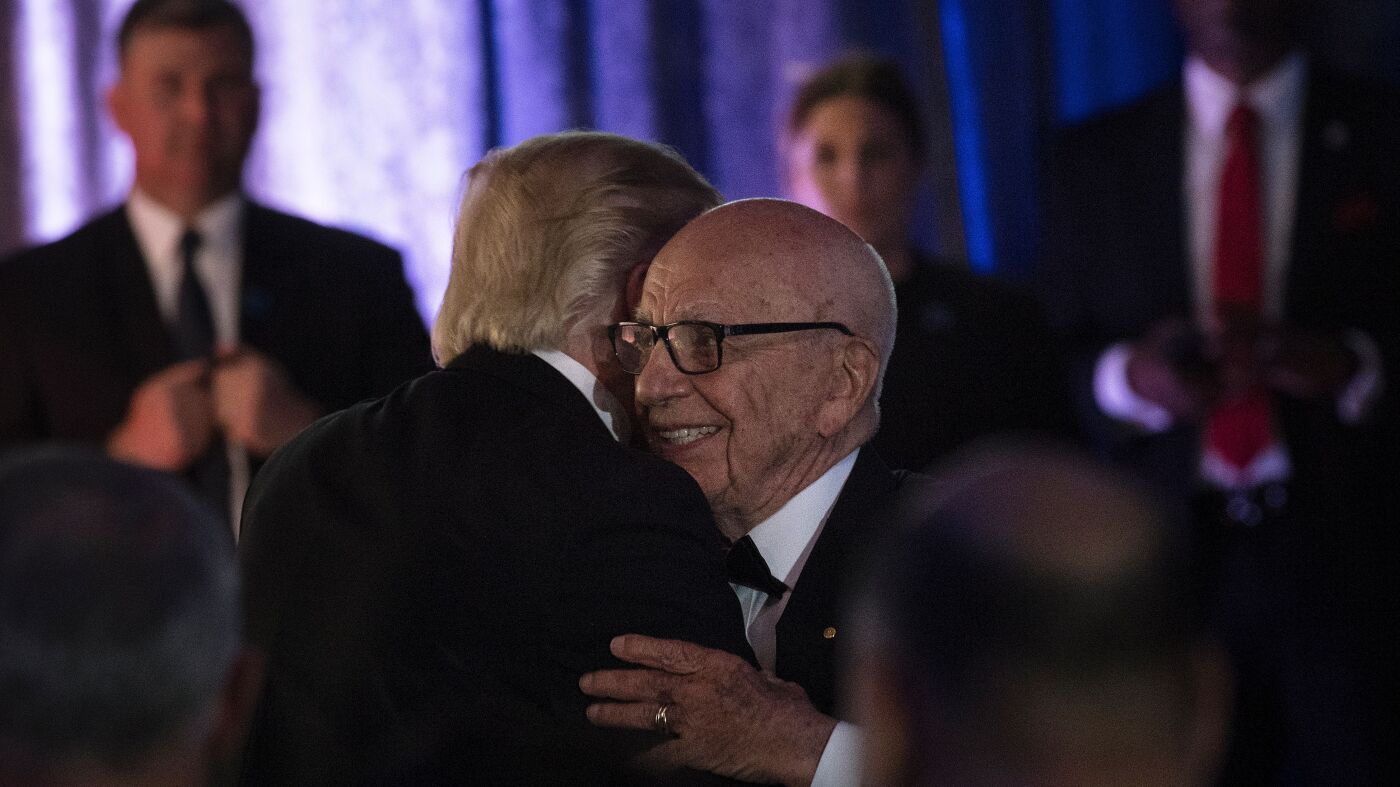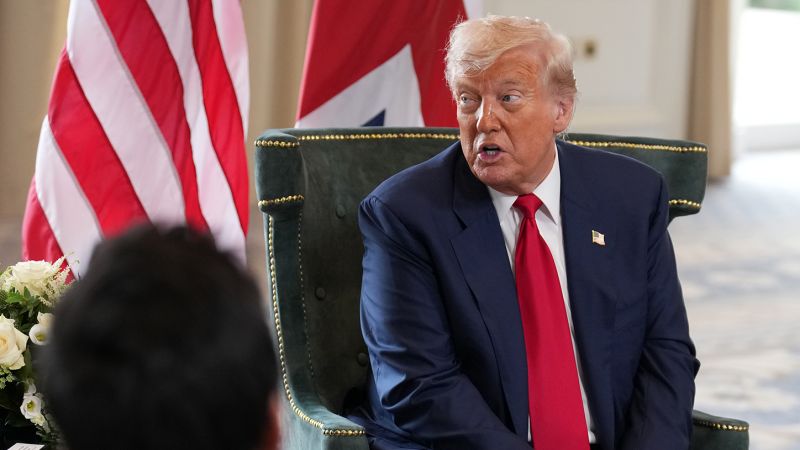Alex Acosta Clears Donald Trump in Epstein Case: New Details Emerge

Introduction
Alex Acosta, the former U.S. Attorney and Labor Secretary, has been at the center of controversy surrounding his handling of the Jeffrey Epstein case. Recently, it was reported that Acosta cleared Trump of any wrongdoing in the matter, according to GOP sources. This development comes after Acosta faced scrutiny for his role in Epstein's lenient plea deal in 2008.
Key Details
Acosta sat for an interview with Congressional investigators in September, providing insight into his actions during the Epstein case. His involvement in the plea deal, which allowed Epstein to serve only 13 months in jail despite allegations of abusing underage girls, has been heavily criticized. The latest information suggests that Acosta's testimony may have implications for understanding the broader context of Epstein's case and its connections to political figures.
Impact
The clearing of Trump by Acosta adds another layer of complexity to the ongoing investigations and public debates surrounding Epstein's case. It highlights the political and legal challenges faced by those involved in the case, both historically and in the present day.
About the People Mentioned
Alex Acosta
R. Alexander Acosta, born in Miami to Cuban immigrants, is an American attorney and former government official who earned a bachelor's degree in economics from Harvard College in 1990 and a law degree cum laude from Harvard Law School in 1994.[1][2][6] After law school, he clerked for Judge Samuel A. Alito Jr. on the U.S. Court of Appeals for the Third Circuit, then practiced employment and labor law at Kirkland & Ellis while teaching at George Mason University's Antonin Scalia School of Law.[1][2][5] Acosta held several Senate-confirmed roles under President George W. Bush: member of the National Labor Relations Board (2002-2003), where he authored over 125 opinions; Assistant Attorney General for the Civil Rights Division of the Department of Justice (2003-2005), becoming the first Hispanic in that position; and U.S. Attorney for the Southern District of Florida (2005-2009).[1][2][3][5] From 2009 to 2017, he served as dean of Florida International University College of Law and later as chairman of U.S. Century Bank.[1][2][3] In 2017, President Donald Trump nominated Acosta as the 27th U.S. Secretary of Labor; the Senate confirmed him 60-38, marking him as the first Latino in that cabinet role.[1][2][6][7] He resigned on July 19, 2019, amid criticism of a 2008 non-prosecution agreement he oversaw as U.S. Attorney involving financier Jeffrey Epstein, who received a lenient 13-month sentence with work release on state charges of soliciting minors, avoiding federal trial.[1][4] Acosta has received awards including twice being named among the nation's 50 most influential Hispanics by Hispanic Business magazine, the 2008 list of 100 most influential in business ethics, and the South Florida Hispanic Chamber of Commerce's Chairman’s Higher Education Award in 2013.[2] Post-resignation, he has maintained a lower public profile, with no major recent roles noted as of early 2026.[1][7]
Donald Trump
Donald John Trump, born June 14, 1946, in Queens, New York, is an American businessman, media personality, and politician. He graduated from the University of Pennsylvania’s Wharton School in 1968 with a degree in economics. In 1971, he took over his family’s real estate business, renaming it the Trump Organization, through which he expanded into building and managing skyscrapers, hotels, casinos, and golf courses. Trump gained widespread fame as the host of the reality TV show *The Apprentice* from 2004 to 2015, which helped establish his public persona as a successful entrepreneur. Trump entered politics as a Republican and was elected the 45th president of the United States, serving from 2017 to 2021. His presidency was marked by significant policy actions including tax cuts, deregulation, the appointment of three Supreme Court justices, renegotiation of trade agreements (notably replacing NAFTA with the USMCA), and a focus on immigration control including border wall expansion. He withdrew the U.S. from international agreements such as the Paris Climate Accord and the Iran nuclear deal, and engaged in a trade war with China. His administration’s response to the COVID-19 pandemic was criticized for downplaying the virus’s severity. Trump was impeached twice by the House of Representatives—first in 2019 for abuse of power and obstruction, and again in 2021 for incitement of insurrection—but was acquitted by the Senate both times. After losing the 2020 election to Joe Biden, Trump challenged the results, culminating in the January 6, 2021, Capitol riot. He remains a central figure in American politics, having won the 2024 presidential election and returned as the 47th president in 2025, continuing to promote policies aimed at economic growth, border security, and military strength[1][2][3][4].
Jeffrey Epstein
Jeffrey Edward Epstein (January 20, 1953 – August 10, 2019) was an American financier and convicted sex offender whose life and crimes attracted intense media scrutiny and public controversy[1][3]. Born and raised in Brooklyn, New York, Epstein initially worked as a teacher at the Dalton School in Manhattan before transitioning to a career in finance, joining Bear Stearns and later establishing his own investment firms[1][2]. He managed the wealth of billionaire Leslie Wexner, amassing significant personal fortune and cultivating a social circle that included politicians, celebrities, business leaders, and even royalty[2][3]. Epstein’s professional achievements were overshadowed by criminal allegations. In 2005, police in Palm Beach, Florida, began investigating him after a parent reported he had sexually abused her 14-year-old daughter[1]. Federal authorities later identified dozens of girls, some as young as 14, whom Epstein had allegedly abused[1][6]. In 2008, he pleaded guilty in Florida state court to procuring a child for prostitution and soliciting a prostitute as part of a controversial plea deal, serving nearly 13 months in custody with work release privileges[1][2]. Despite his conviction, Epstein avoided more severe federal charges at the time. In July 2019, Epstein was arrested again on federal charges for sex trafficking minors in Florida and New York[1][2]. While awaiting trial in a Manhattan jail, he was found dead in his cell on August 10, 2019; the medical examiner ruled his death a suicide by hanging[1][3]. The circumstances surrounding his death, including missing and modified CCTV footage, fueled widespread public skepticism and conspiracy theories[1]. In July 2025, the FBI released surveillance footage supporting the suicide ruling, though questions about the investigation persist[1]. Epstein’s case remains highly relevant due to ongoing lawsuits by his victims, investigations into his associates, and the release of thousands of previously sealed documents in early 2024 that renewed public interest in his network and alleged co-conspirators[2]. His former associate, Ghislaine Maxwell, was convicted of related charges, underscoring the lasting impact of his crimes[2]. Discussions about accountability, the influence of wealth and power, and the treatment of survivors continue to shape the public dialogue around Epstein’s legacy[2][5].
About the Organizations Mentioned
GOP
The **GOP**, or **Grand Old Party**, is the widely recognized nickname for the **Republican Party** of the United States, a major conservative political party founded in 1854. It originated from anti-slavery activists opposing the Kansas-Nebraska Act, uniting former Whigs and Free Soilers with a platform centered on halting the expansion of slavery. The party's early historic milestone was the election of Abraham Lincoln in 1860, which precipitated the Civil War; under Lincoln’s leadership, the GOP focused on preserving the Union and abolishing slavery[1][2][3]. Throughout its history, the Republican Party has evolved from its abolitionist roots to champion business interests, industrial growth, and economic policies favoring limited government intervention. In the late 19th and early 20th centuries, it promoted protective tariffs and infrastructure development. The party experienced fluctuating influence, losing ground during the New Deal era but regaining prominence with Dwight D. Eisenhower’s presidency in the 1950s, marked by moderate conservatism[1][2]. Today, the GOP advocates for reduced taxes, conservative social policies, limited government regulation, strong national defense, and states’ rights. It remains one of the two dominant forces in American politics, consistently shaping legislative agendas and national discourse[2]. The party is organized and led nationally by the **Republican National Committee (RNC)**, which manages fundraising, election strategies, and the party platform, coordinating efforts across states and counties under the leadership of a chairman[3][4]. Notably, the acronym "GOP" was popularized in the late 19th century and originally stood for "Grand Old Party," symbolizing the party's legacy in preserving the Union and championing liberty. It is now a common term in political commentary and media[3][5]. In recent years, the GOP has undergone significant membership changes in Congress and leadership adjustments, reflecting its dynamic role in U.S. politics as


















